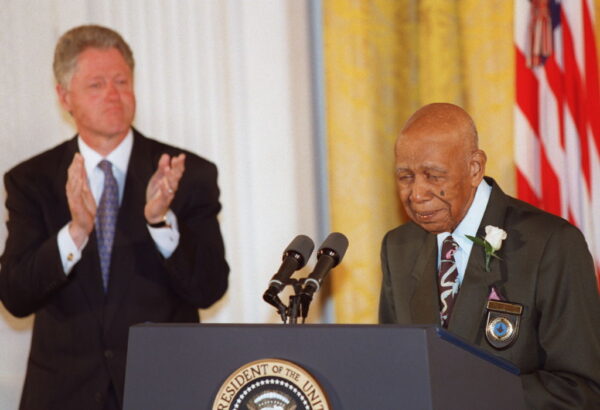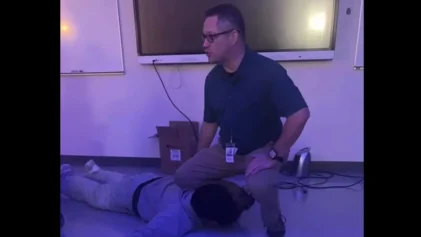A New York foundation has apologized for its role in the Tuskegee experiment, which killed hundreds of Black men 90 years ago.
Money from the Milbank Memorial Fund was used to lure families deeper into the government scheme to test the effects of syphilis on humans.
For 40 years, the fund offered up to $100 to the families to help with the funeral costs for their relatives in the experiment. But they had to agree to let doctors open the men’s bodies for autopsies.

Milbank Memorial Fund officials publicly apologized on Saturday, 50 years after news of the experiment broke and it was stopped. The apology follows momentum behind calls for racial equality after the police killing of George Floyd.
“It was wrong. We are ashamed of our role. We are deeply sorry,” said the president of the fund, Christopher F. Koller.
The U.S. Public Health Service and Tuskegee Institute launched the “Tuskegee Study of Untreated Syphilis in the Negro Male” in 1932 to study the progression of syphilis in 600 Black men without their consent. According to the Centers for Disease Control and Prevention, 399 Black men had the disease and another 201 in the study did not. Health officials told the men that they were being treated for “bad blood.”
Even though the U.S. government discovered a treatment for syphilis by 1943, it was not given to the participants. Instead, officials gave them a placebo.
In addition to burial insurance, the participants received free medical exams and food.
Milbank Memorial Fund accompanied the apology with an undisclosed donation for a foundation that benefits the descendants of the victims of the deadly science experiment. It has left lingering mistrust of the medical field in Black Americans dubbed the Tuskegee effect.
“The upshot of this was real harm,” Koller told The Associated Press.” It was one more example of ways that men in the study were deceived. And we are dealing as individuals, as a region, as a country, with the impact of that deceit.”
The apology and monetary gesture were presented to the Voices for Our Fathers Legacy Foundation at a ceremony with an audience filled with children and other relatives of the men who were part of the study.
The experiment was halted in 1972, after the Associated Press exposed it. President Bill Clinton apologized to the eight survivors of the study in 1997. They have all since died.
Voices president Lillie Tyson Head’s father was part of the experiment. She called the fund’s apology “a wonderful gesture and a wonderful thing.”
Head’s late father, Freddie Lee Tyson, grew suspicious and left the study years before it ended. Her family did not receive any of the Milbank Memorial money, and she wasn’t aware of the fund even though hundreds of other families received the checks.
“It’s really something that could be used as an example of how apologies can be powerful in making reparations and restorative justice be real,” Head said.
Milkbank Fund turned to historian Susan M. Reverby, who wrote a book about the study, to track their participation in the scheme.
The organization got involved in 1935, after the then-U.S. Surgeon General Hugh Cumming thought it would be an important tool to persuade the families to allow the government to dissect the bodies. The fund, headed by a group of white men, offered money the families would’ve otherwise struggled to acquire to provide a proper burial for their loved ones.
The government experimented on a final tally of 620 men in the Tuskegee study. The fund wrote $20,150 in checks for about 234 autopsies. The payments died down as the Depression ended, and the families’ financial footing was restored.
The survivors and their families received a $10 million settlement from a class-action lawsuit they filed in 1973. According to court documents, the awards were very “relatively small” once rationed out. Milkbank was included in the lawsuit, but was later removed.
Koller said that Floyd’s death ignited discussions about recourse for the fund’s role in the scheme. The organization had also become more diverse by then.
“Both staff and board felt like we had to face up to this in a way that we had not before,” he said.
The Voices will use the funding for scholarships for the descendants of the study’s participants and a memorial at Tuskegee University, Head said.
Reverby said Milkbank’s apology could serve as an example for other groups with ties to systemic racism. California, Harvard and Georgetown universities and the Southern Baptist Convention have apologized for their roles in slavery and systemic racism since Floyd’s death.
‘”It’s really important because at a time when the nation is so divided, how we come to terms with our racism is so complicated,” she said. “Confronting it is difficult, and they didn’t have to do this. I think it’s a really good example of history as restorative justice.”


